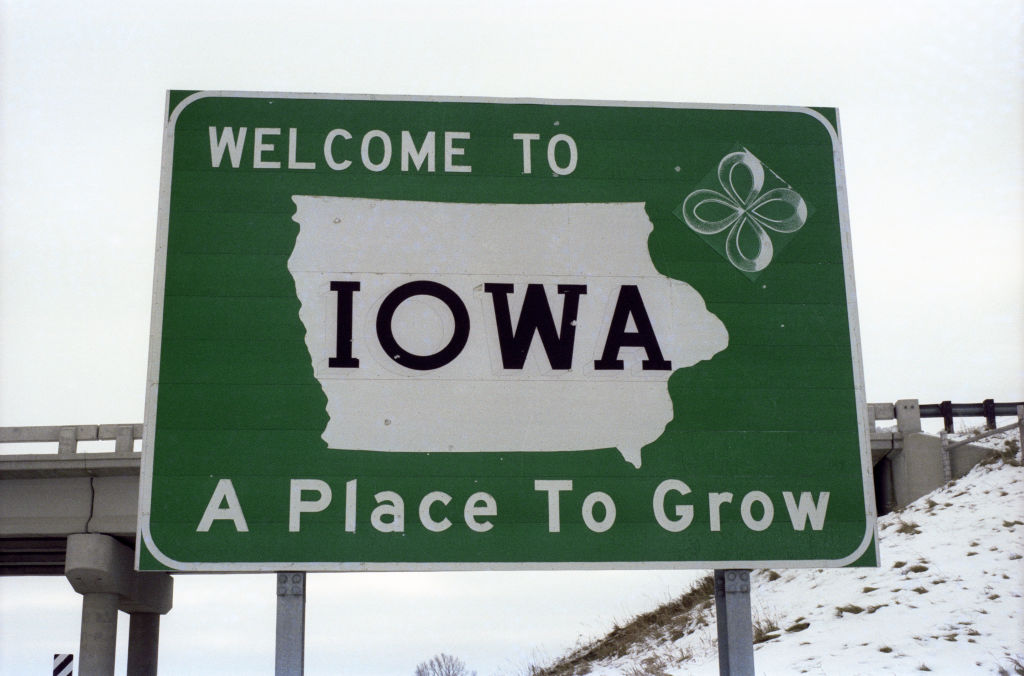Ebony Wilkerson is sitting inside a Florida jail cell, but should she be viewed as a cold-blooded criminal or a mentally-ill person in need of long-term mental health care?
Wilkerson, 32, has been charged with three counts of attempted murder and is being held on $1.2 million bail after she drove herself and her three children (two girls and a boy, ages 3, 9 and 10) into the Atlantic Ocean in Daytona Beach last week. While it has not been confirmed, reports suggest that Wilkerson may have been suffering from a mental disorder, thus renewing public conversations on how the mentally ill should be treated by the legal system and society in general.
Jessica Harrell, Wilkerson’s sister, called 911 hours before her older sibling drove her vehicle into the ocean March 4. “She’s talking about Jesus, that there are demons in my house, that I’m trying to control her, but I’m trying to keep them safe,” Harrell, 28, said during the 911 call.
RELATED: Why Are The Three Largest Mental Health Care Providers Jails?
An officer pulled over Wilkerson’s black Honda Odyssey after getting the 911 call. He said Wilkerson told him she and her children were escaping her abusive husband in South Carolina. Leonard Ross, the attorney who is representing Wilkerson’s husband, Lutfill Ronjon, said that the abuse allegations are “baseless.” But The Post and Courier reports that Ronjon was arrested in May of 2005 for domestic violence. While the police report redacts the wife’s name, it cites the wife’s sister as Jessica Harrell. This morning, a Volusia County judge ordered Ronjon to stay away from Harrell after she reported that he threatened to kill her since Wilkerson’s arrest.
In Florida, Wilkerson could have been taken into custody under the Baker Act, a state law that allows authorities to involuntarily take people into custody if they seem to be a threat to themselves and others. But the officer who pulled her over did not feel the need to do so, because the children were sitting in the back smiling and did not seem to be in danger. “It was clear during my conversation that Wilkerson was suffering from some form of mental illness, but she was lucid,” the Daytona Beach police officer said in his report, according to the Associated Press.
She would drive herself and her children into the ocean soon after the officer let her go.
Watch video of Wilkerson driving into the ocean and the subsequent rescue:
Wilkerson told her children that she was “trying to take them to a better place,” according to authorities. Dramatic video of the rescue efforts show Good Samaritans frantically pulling the children out of the minivan. Today, the children are in child protective services and their mother is suspected of trying to kill them.
“The difficulty in the Black community is that we don’t get diagnosed”
Even if Wilkerson did suffer from a mental illness, using it as a legal defense in court could be tricky.
“The difficulty in the Black community is that we don’t get diagnosed,” NewsOne legal analyst and Birmingham, Ala.,-based criminal attorney Eric Guster said. “We treat mental illness as a horrible thing and never talk about it or get help. That makes it difficult in a defense because there’s not a diagnosis already. It’s much more difficult to use it as a defense. As defense attorneys, we have to depend on the client, their family and medical records to assist in raising this defense. Without the history, it’s much more difficult to prove the illness. A person can lie and say, ‘The voices made them do it,’ as opposed to a person previously diagnosed with a history.”
Wilkerson’s family said that she has no history of mental illness, according to the Orlando Sentinel.
The National Alliance on Mental Illness reports that African Americans are less likely to seek help from a mental health professional than Whites. The reluctance has much to do with the stigma attached to mental illness in our community–even if seeking help could be a life-saving decision.
“Our first instinct when something goes wrong is not to get evaluated,” Cheryl Donald, a licensed marriage and family therapist in Brooklyn, N.Y., told NewsOne. “Our first instinct is maybe see our pastor or go to ‘the word.’ Those are all cultural things that we tend to do.”
“Black people have the attitude, ‘if our ancestors could endure slavery, then I can get over this depression'”
RELATED: Chris Brown Diagnosed With Bi-Polar And PTSD, Ordered To Stay In Rehab
Alexis Clarke, a licensed clinical psychologist at the Cook County Juvenile Temporary Detention Center in Chicago, told NewsOne that many African Americans view therapy as treatment for the weak.
“Black people, particularly because of our history, feel like we can just do anything and have the attitude, ‘if our ancestors could endure slavery, then I can get over this depression,” she said. “Unfortunately, a lot of African Americans have that view without the understanding that it’s OK to say that you need help because everybody needs help. It may not necessary be to the level of needing to take medication, but I believe everyone needs to be in therapy because everybody goes through something.”
The numbers that back Clarke’s claim are startling.
According to a recent study by Mental Health America of Colorado, 63 percent of African Americans view depression, for example, as a “personal weakness,” compared to the overall study average of 54 percent; only 31 percent see it as a health problem. When African Americans do seek mental health treatment, they’re often treated by providers who do not look like them or cannot relate to their cultural experiences. Only 5 percent of new PhD psychology graduates are African American, according to the 2009 Doctorate Employment Survey conducted by the American Psychology Association.
Clarke added that African Americans are often in situations where they are “working with a mental health provider who is not multi-culturally competent, so they end up having an experience that’s not helpful and they don’t want to go back. There is a high rate of African American clients dropping out of therapy because of this.”
Only 2 percent of psychologists, 2 percent of psychiatrists and 4 percent of social workers in the United States are African American, according to the National Alliance on Mental Illness.
“It’s family and friends who are often in the best positions to identify mental illness symptoms”
Over the past 12 months, African Americans with a reported history of mental illness have made national news. One of the more notable cases is of 34-year-old contractor Aaron Alexis. He shot 12 people dead at Navy Yard in Washington D.C. before being killed by authorities.
While Alexis reportedly had documented mental health issues, he was never diagnosed for a mental illness, despite the fact he told officers he was “hearing voices” before the deadly shooting. Alexis’ family and friends said the former Navy man was not violent and that they never could imagine that he was capable of murder. But did they miss critical signs that something serious was wrong with Alexis? Did they miss the symptoms associated with someone mentally-ill.
Research consistently shows that the vast majority of people dealing with mental illness are not violent, but mental health professionals say it’s family and friends who are often in the best positions to identify mental illness symptoms in loved ones and urge them to seek help.
RELATED: How We Can REALLY Honor the Legacy of Don Cornelius
“Family members are critical in helping encouraging loved ones to seek mental health services because you know that person,” Dr. Sarah Vinson, a psychiatrist in Atlanta and assistant professor at the Morehouse School of Medicine, told NewsOne. “You know there is a deviation in baseline before anybody else will. So I think it’s important for people that if their loved one doesn’t seem like themselves or they’re not as interested in things or they’re not fulfilling their responsibilities the same way they would or are saying things that don’t sound like them not to blow it off and take the seriously.”
‘If Wilkerson was, in fact, abused by here husband, that could also trigger suicidal behavior’
There is no significant relationship between mental illness and violence, but every situation is unique. Because a judge issued a gag order on Wilkerson’s child custody case during a hearing yesterday, we do not know her mental state. But, if reports of her having a serious mental illness turn out to be true, it has to be taken into account.
Donald, who has more than 14 years of experience dealing with African-American patients with mental illnesses, added that if Wilkerson was, in fact, abused by here husband, that could also trigger suicidal behavior.
“When we see members of our own community who are committing these acts and the notion of a mental health illness is immediately discredited, I would just caution the public to take a moment to think about what the symptoms of these mental health diagnoses are,” she said. “What are the symptoms of a person who is suffering from domestic violence? They experience low self-esteem, and many of them experience suicidal ideations and attempts. Many of them have feelings of hopelessness. A lot of these symptoms are there when those situations are occurring. I do not know what the situation is in regards to the fact that her children are young.We don’t know if there is any postpartum depression going on. Those symptoms are the same as the symptoms that we see with victims of domestic violence. And she was pregnant, so there’s a lot of things there that we can’t really ignore until we have an opportunity to talk with this person and take a look at her history.”























